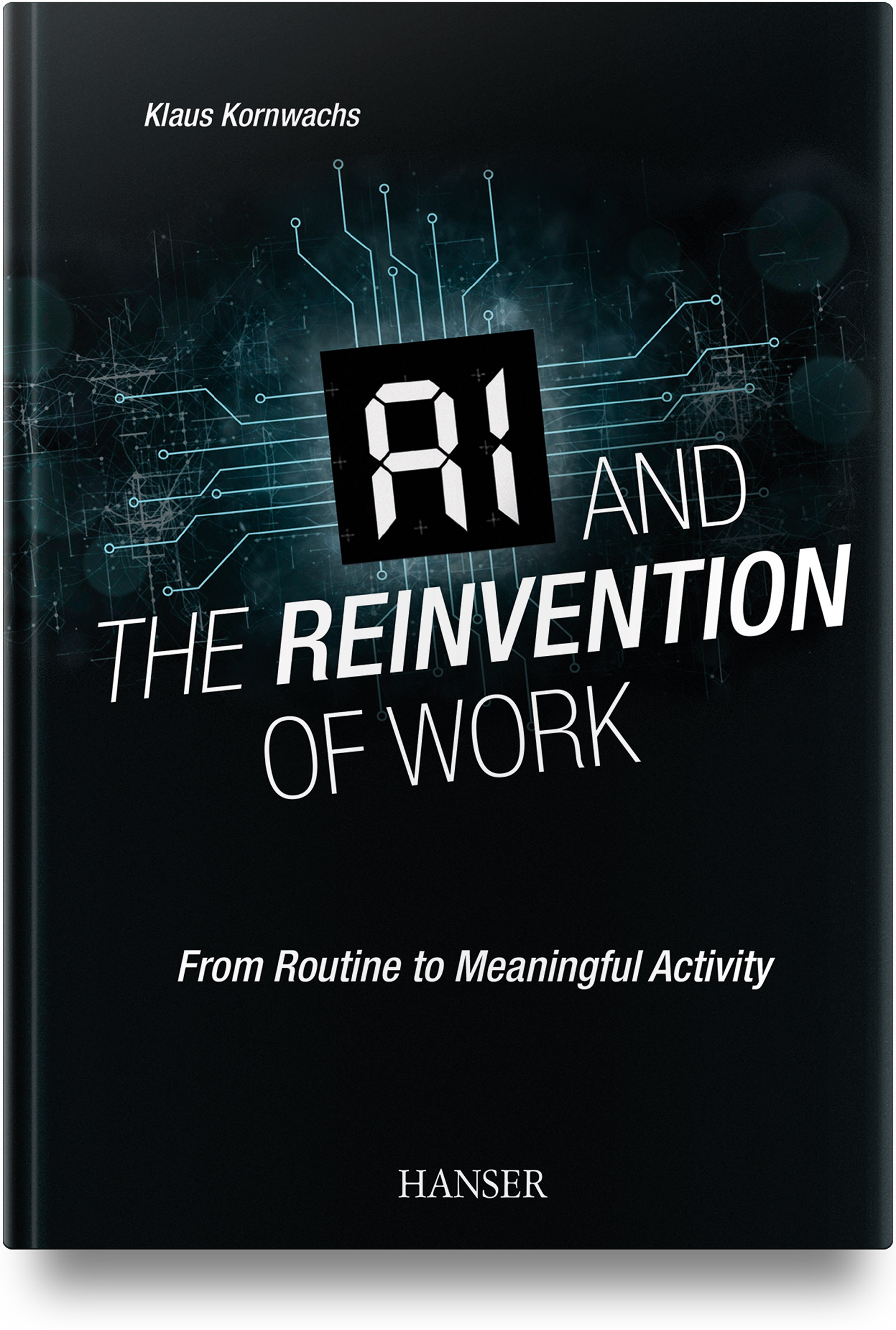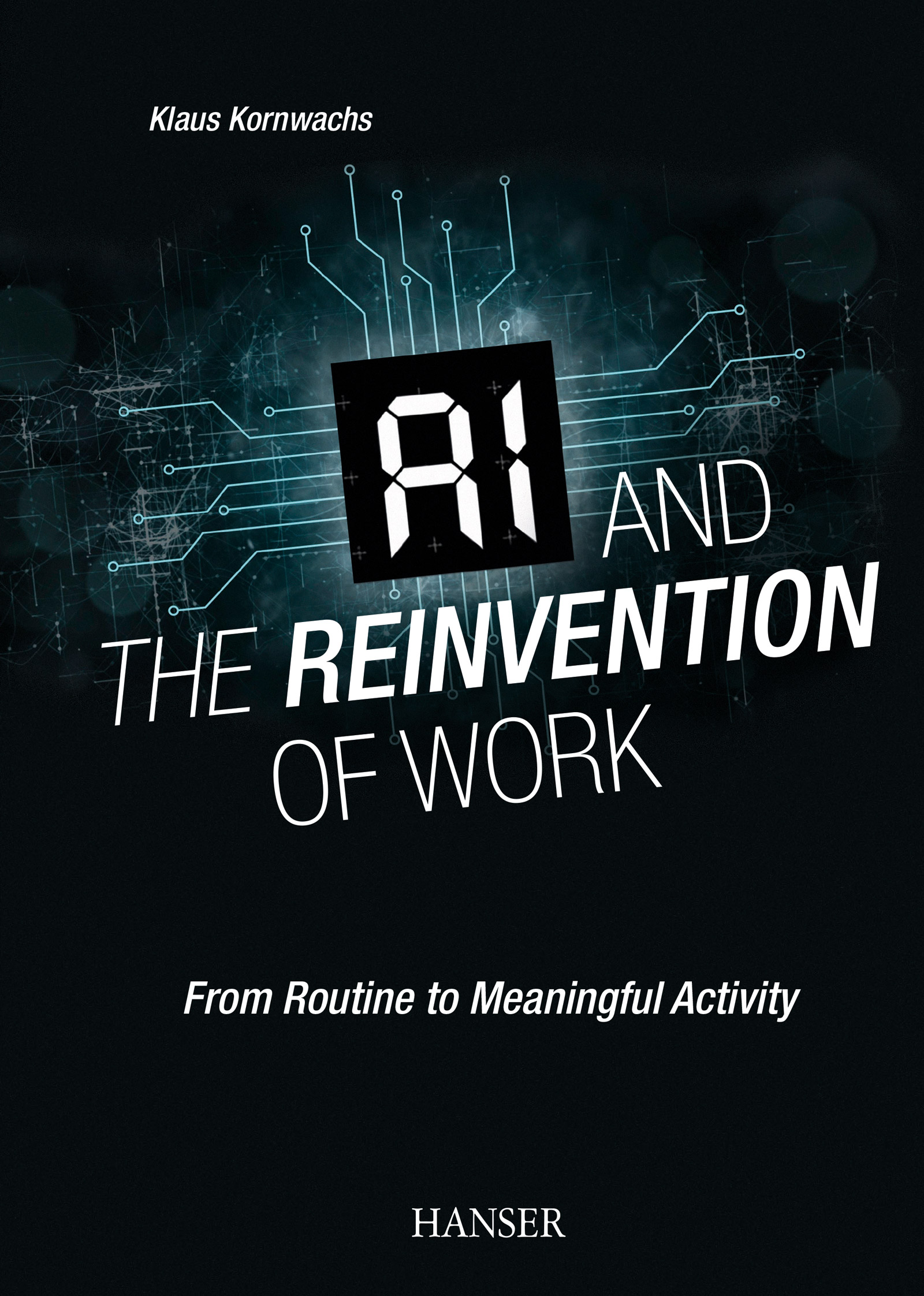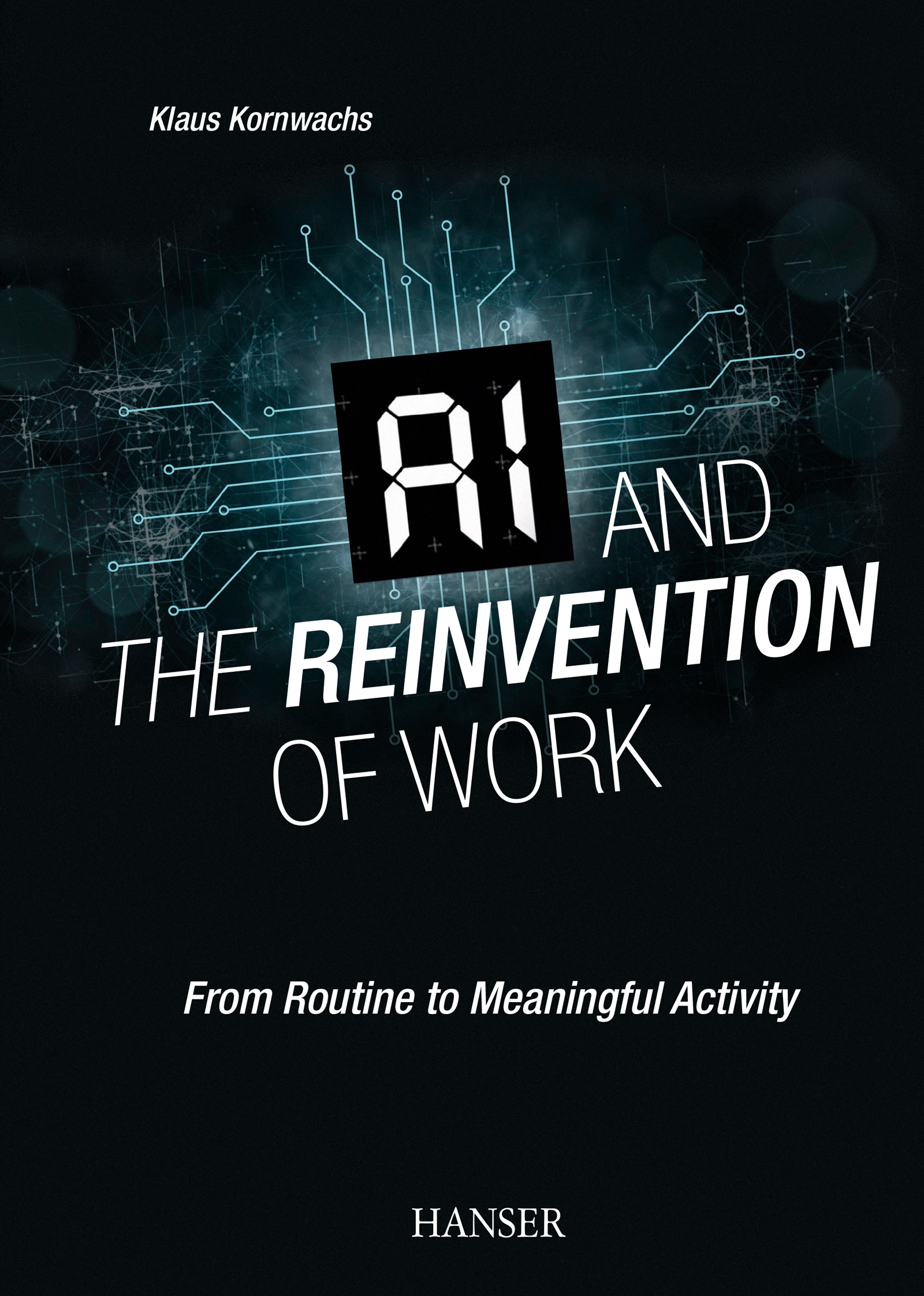- You are here:
- Home
- Engineering & Management
AI and the Reinvention of Work
From Routine to Meaningful Activity
Our checkout for USA and Canada is powered by IndiePubs. You will be automatically redirected to the IndiePubs checkout process.
incl. taxes, plus possibly shipping costs
incl. taxes, plus possibly shipping costs
published
published
- ISBN: 978-1-56990-190-8
- Book details: 1. Edition, 12/2024
396 Pages, Hardcover
Using scenarios, Klaus Kornwachs examines the fields of work in which major AI-related changes can be expected and shows that major disruptions have already taken place in the past. You will find out what today’s developments mean and how to classify them without rushing to proclaim a new age.
The book offers an outlook on possible future work environments. Work will probably consist of more creative, less routine-based activities. The current employer-employee relationship will change from working to rule to defining and completing tasks independently. This is not a prediction, but a spectrum of possibilities that could result from the technological developments. There is always more than one option. To find out what we want, it is worth looking at the meaning of work as part of human existence. There are many different views on this, all of which are presented in the book.
After reading this book, some of the current discussions about the impact of AI on the working world will appear exaggerated to you. You will gain a better understanding of the limits of AI as well as our own limits. You will also be able to decide where AI can overcome those limits and where we need to set limits for ourselves.
Using scenarios, Klaus Kornwachs examines the fields of work in which major AI-related changes can be expected and shows that major disruptions have already taken place in the past. You will find out what today’s developments mean and how to classify them without rushing to proclaim a new age.
The book offers an outlook on possible future work environments. Work will probably consist of more creative, less routine-based activities. The current employer-employee relationship will change from working to rule to defining and completing tasks independently. This is not a prediction, but a spectrum of possibilities that could result from the technological developments. There is always more than one option. To find out what we want, it is worth looking at the meaning of work as part of human existence. There are many different views on this, all of which are presented in the book.
After reading this book, some of the current discussions about the impact of AI on the working world will appear exaggerated to you. You will gain a better understanding of the limits of AI as well as our own limits. You will also be able to decide where AI can overcome those limits and where we need to set limits for ourselves.
Klaus Kornwachs (born 1947) studied physics, mathematics, and philosophy in Tübingen, Freiburg, Kaiserslautern, and Amherst (Mass., USA). After graduating in physics (1973), he received his doctorate in Freiburg (1976) and his habilitation in philosophy in Stuttgart (1987). From 1979 to 1992, he worked at the Fraunhofer Institute for Industrial Engineering in Stuttgart, as head of the department for qualification research and technology assessment. In 1991, he received the Research Award for Technical Communication from the Alcatel SEL Foundation. From 1992 to 2011, he held the Chair of Philosophy of Technology at BTU Cottbus. Visiting professorships and fellowships have taken him to Vienna, Budapest, Stuttgart, Dalian (China), and Stellenbosch (South Africa). He is a full member of the National Academy of Science and Engineering (acatech). Klaus Kornwachs has been Honorary Professor at the University of Ulm since 1990 and Honorary Professor at the Intelligent Urbanization Co-Creation Center at Tongji University, Shanghai, since 2013. Klaus Kornwachs founded his “Office for Culture and Technology” in 2011. He is editor and author of numerous specialist books and publications (www.kornwachs.de).
Klaus Kornwachs (born 1947) studied physics, mathematics, and philosophy in Tübingen, Freiburg, Kaiserslautern, and Amherst (Mass., USA). After graduating in physics (1973), he received his doctorate in Freiburg (1976) and his habilitation in philosophy in Stuttgart (1987). From 1979 to 1992, he worked at the Fraunhofer Institute for Industrial Engineering in Stuttgart, as head of the department for qualification research and technology assessment. In 1991, he received the Research Award for Technical Communication from the Alcatel SEL Foundation. From 1992 to 2011, he held the Chair of Philosophy of Technology at BTU Cottbus. Visiting professorships and fellowships have taken him to Vienna, Budapest, Stuttgart, Dalian (China), and Stellenbosch (South Africa). He is a full member of the National Academy of Science and Engineering (acatech). Klaus Kornwachs has been Honorary Professor at the University of Ulm since 1990 and Honorary Professor at the Intelligent Urbanization Co-Creation Center at Tongji University, Shanghai, since 2013. Klaus Kornwachs founded his “Office for Culture and Technology” in 2011. He is editor and author of numerous specialist books and publications (www.kornwachs.de).
Carl Hanser Verlag GmbH & Co KG
Kolbergerstr. 22
81679 München
E-Mail: info@hanser.de
Safety instructions according to Art. 9 para. 7 sentence 2 GPSR are not required.
Carl Hanser Verlag GmbH & Co KG
Kolbergerstr. 22
81679 München
E-Mail: info@hanser.de
Safety instructions according to Art. 9 para. 7 sentence 2 GPSR are not required.



